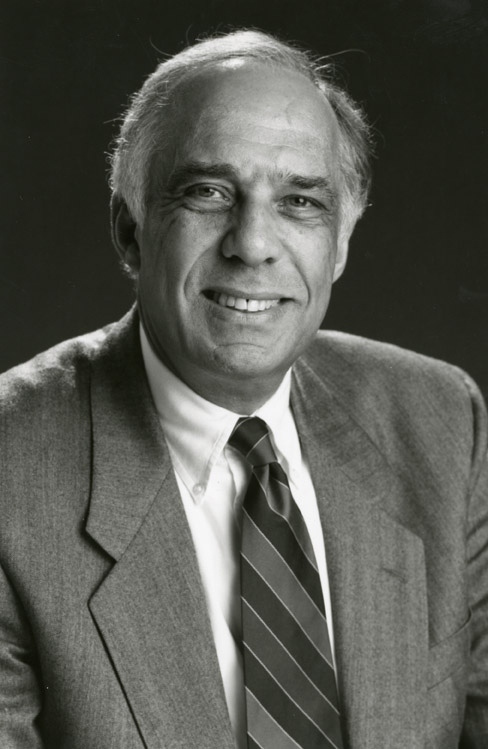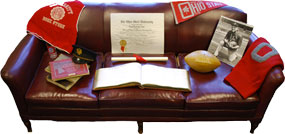Robert M. Duncan, who passed away Friday at the age of 85, made many contributions to the local community. But we’d like to focus on his long and impressive commitment to the University, his alma mater.
Duncan was born in Urbana, Ohio, and entered The Ohio State University to study education in the 1940s. In an oral history interview he gave to the Archives in 2011, Duncan remembers wanting to come to Ohio State because his aunt and uncle lived in Columbus, so he would have a place to live. Like many African-Americans of the time, he lived in east Columbus and rode a street car to campus. While at OSU, Duncan was a member of the Kappa Alpha Psi fraternity; he graduated in 1948 with a bachelor’s degree in education.
After graduation Duncan had a difficult time getting a job, so he moved to Chicago in search of better opportunities. After working as a bellman and sometimes as a substitute teacher, Duncan decided to return to Columbus and pursue a law degree at The Ohio State University. While pursuing his law degree, Duncan was elected president of his class and worked at the statehouse for fellow OSU alumnus William B. Saxbe, who later served as U.S. Attorney General.
Following law school Duncan served during the Korean War for two years, then returned to Columbus. He went into private practice, but didn’t like it, so he started on a long career of public service, first as a state assistant attorney general, then as a Franklin County judge, then as a member of the Supreme Court of Ohio, the first African American to do so. In 1974, President Richard Nixon appointed him to the U.S. District Court for the Southern District of Ohio. He was the first African-American judge to be appointed to the federal bench in Ohio, and in this position Duncan wrote the order ending segregation in the Columbus Public Schools.
During his jurist career, Duncan maintained a close relationship with OSU, using law school students as externs in his office and teaching at the law school as an adjunct professor. His relationship solidified in 1992, when he was appointed vice president and general counsel to The Ohio State University. During that time he established the University’s first Office of Legal Affairs. He also served as secretary to the Ohio State University Board of Trustees and served a nine-year term on the Board of Trustees. In addition, Duncan was on the Executive Committee of the Presidents Club and was chairman of the University Hospital Board. He was a past president of the law school’s Alumni Association, was a former Distinguished Jurist in Residence at Moritz, and served as an honorary member of the College’s National Council.
The awards and recognitions Judge Duncan received also reflected his numerous endeavors in Columbus and beyond during his lifetime of service. Among the honors was the Ohio State University Distinguished Alumnus Award. In his oral history interview, he helps explain his lifelong attachment to the University:
I remember the first day I came on campus. … My first class was in University Hall, which was a history class. People were extremely friendly. … I met another African American guy from Ironton, a guy named Marty Gibbs, who is still a friend of mine. … After class we walked across campus to the old Ohio Union, which is now Enarson Hall. I remember walking into the grill room on the ground floor. There was a jukebox. And I remember hearing the Nat King Cole Trio on the juke box, playing “Route 66.” And I looked around the room and there were all these coeds around there and said, “This is where I need to be. This is a wonderful place.” It was a great first day. And I suppose that sort of emotional effect of being at the University has never left me through all the subsequent 65 years.
To learn more about Judge Duncan in his own words please read his oral history in the Knowledge Bank. (https://kb.osu.edu/dspace/handle/1811/49703)






Recent Comments